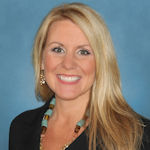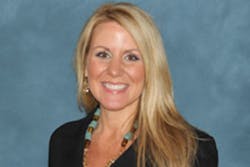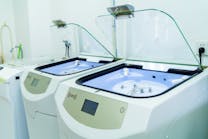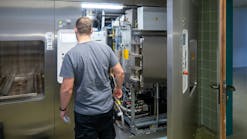Central Service (CS) professionals will benefit their careers, customers and patients by taking the initiative to become certified and not waiting for their state legislators or hospital executives to require it. This is the message shared by a growing number of quality- and safety-focused CS experts and departmental managers — many of whom have witnessed the role certification plays in positive outcomes, customer service, professional development, and career advancement.
Without question, certification of CS technicians is a subject being highlighted with growing regularity, not only within IAHCSMM and amongst those who comprise the CS discipline, but also in the media; amongst state-elected officials; allied healthcare organizations; The Joint Commission (TJC) and other accreditation and surveying bodies. The general public has also become increasingly aware of the importance of having the most skilled, knowledgeable and professional personnel in the role of instrument decontamination, sterilization and management. It’s a need that can be met through certification and a commitment to ongoing education by any professionals responsible for instrument reprocessing.
As with any other specialty, achieving certification helps demonstrate that individuals possess the theoretical knowledge and science behind why tasks and processes must be performed in a particular way, reasoned IAHCSMM President Steven J. Adams, CRCST, BA, RN. “Obtaining this knowledge and having the ability to apply it to daily tasks provides a heightened sense of quality and reliability to the jobs performed.”
Safety at the forefront
IAHCSMM maintains that all patients have the right to receive the highest quality of care during their visits to a healthcare facility. Through certification, CS technicians will acquire the knowledge needed to assist in the challenge of reducing healthcare-associated infections. Specifically, IAHCSMM contends that every patient deserves to have an educated, certified CS technician responsible for reprocessing his or her instruments when and where they are needed. This is vital given that surgical instruments and equipment evolve at a rapid pace, and industry standards also evolve to keep up with those advancements. As such, CS professionals must have the knowledge, skill sets and training needed to manage those sophisticated devices and operate the necessary equipment safely, consistently and effectively.
Standards from the Association for the Advancement of Medical Instrumentation (AAMI) and the Association of periOperative Registered Nurses (AORN) recommend certification for individuals responsible for sterilization activities and the management of CS processes. Additionally, TJC’s Patient Safety goals require specific knowledge of the processing and monitoring of instrumentation and equipment to comply with their rigid quality control policies in order to prevent patient injury. CS professionals across the country can attest that surveyors are increasingly inquiring about their facility’s certification policies.
Amongst the greatest benefits of certification lies in the fact that to maintain certification status, CS technicians must receive ongoing education and attain continuing education credits to demonstrate their continued competency in the role. Josephine Colacci, Esq., IAHCSMM’s government affairs director and her IAHCSMM Advocacy team are educating state elected officials across the country on CS professionals’ critical role in healthcare facilities, and how certification and continuing education play into that mission. With New Jersey, New York, Connecticut and Tennessee already requiring certification of CS technicians — and progress being made on the legislative front in a number of other states — it is a matter of time before facilities nationwide are requiring certification of all professionals involved in the instrument reprocessing function.
Taking the initiative
Many facilities, including those not currently operating in states that require CS certification, are already requiring it on their own because they recognize its value, are committed to quality and safety, and are working hard to stay ahead of the competition. It’s a wise move, especially now that a more educated public means patients and their family members may be asking about certification and visiting facilities that can demonstrate a commitment to safety.
The best step toward advancing the profession and elevating the respect and knowledge of everyone who comprises it is to become more actively involved in the certification process — and there’s no better time that the new year to start laying the foundation for professional development through the pursuit and attainment of CS certification. Those who already hold the Certified Registered Central Service Technician (CRCST) certification may further advance their knowledge and professionalism by becoming a Certified Instrument Specialist (CIS) or Certified Healthcare Leadership (CHL) — secondary certifications offered by IAHCSMM.
The bottom line: CS professionals must fight for their profession and, most importantly, for patient safety. Taking the initiative now to become certified — even if certification is not yet required in one’s state or by one’s healthcare facility — is one of the best ways CS professionals can meet patients’ expectations that they will receive clean, sterile and well-functioning instruments.






